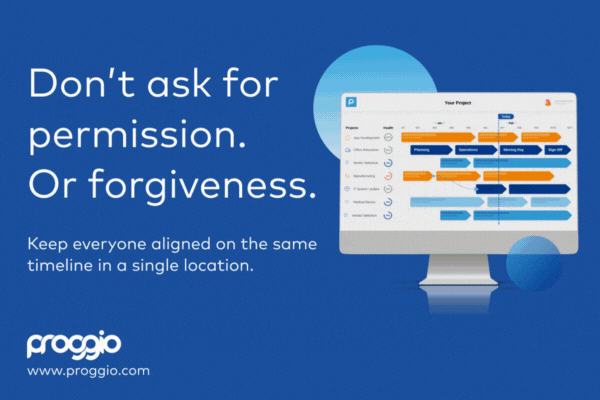Is Artificial Intelligence the Future of Project Management?
As we enter a new era of technological advancements, it’s no surprise that Artificial Intelligence (AI) has taken the world by storm. From self-driving cars to virtual assistants, AI has revolutionized the way we live and work. When it comes to project management, AI is rapidly becoming an indispensable tool for businesses looking to boost productivity and efficiency. But is AI really the future of project management?
In this blog post, we’ll explore how AI is transforming project management and what benefits it can bring to your team. So fasten your seatbelts as we embark on an exciting journey into the world of artificial intelligence in project management!
What is artificial intelligence?
Artificial intelligence (AI) is a branch of computer science that deals with the creation of intelligent agents, which are systems that can reason, learn, and act autonomously. AI research deals with the question of how to create computers that are capable of intelligent behavior.
In practical terms, AI applications can be deployed in several ways, including:
- Machine learning: This is a method of teaching computers to learn from data, without being explicitly programmed.
- Natural language processing: This involves teaching computers to understand human language and respond in a way that is natural for humans.
- Robotics: This involves the use of robots to carry out tasks that would otherwise be difficult or impossible for humans to do.
- Predictive analytics: This is a method of using artificial intelligence to make predictions about future events, trends, and behaviors.
- Expert systems: This is a type of AI application that tries to emulate the decision-making processes of a human expert.Amy Ruddell
What are the benefits of using artificial intelligence in project management?
Artificial intelligence (AI) is slowly but surely changing the face of project management. By automating repetitive and low-level tasks, AI frees up project managers to focus on more strategic tasks that require human expertise. Additionally, AI can help project managers to identify potential risks and issues before they become problems, as well as recommend solutions to address them.
There are many potential benefits of using artificial intelligence in project management. Here are just a few:
- Increased efficiency and productivity: Automating repetitive and low-level tasks frees up project managers to focus on more strategic tasks that require human expertise.
- Improved decision-making: AI can help identify potential risks and issues before they become problems, as well as recommend solutions to address them.
- Greater accuracy: By reducing the margin for error, AI can help improve the overall accuracy of project management processes.
- Reduced costs: Automating various project management tasks can help to reduce labor costs associated with those tasks.
- Increased visibility: AI can provide project managers with a comprehensive view of their projects, allowing them to quickly and easily track progress in real-time.
- Increased collaboration: Advanced AI tools can facilitate better collaboration between teams and stakeholders, leading to more successful projects.
Overall, using AI for project management can help to improve efficiency and accuracy while reducing costs.
Advertisement
[widget id=”custom_html-68″]
What are the challenges of using artificial intelligence in project management?
There are several challenges to using artificial intelligence in project management.
- One is that it can be difficult to manage and monitor projects when some aspects are automated.
- Additionally, artificial intelligence can sometimes make it difficult to replicate the work of a human project manager, leading to issues with quality control.
- There can also be communication challenges when working with artificial intelligence, as it can be difficult to explain the reasoning behind its decisions.
- Finally, there is always the risk that artificial intelligence will make errors, which can have serious consequences for a project.
How can artificial intelligence be used in project management?
In recent years, artificial intelligence (AI) has made significant inroads in a variety of industries and is now being touted as a game-changer for project management. AI can help project managers in several ways, including:
- Automating repetitive tasks: AI can be used to automate repetitive and time-consuming tasks, such as data entry and creating reports. This frees up project managers to focus on more strategic tasks.
- Identifying risks and issues: AI can analyze data to identify potential risks and issues before they become problems. This allows project managers to take proactive steps to avoid or mitigate these issues.
- Optimizing resources: AI can help optimize resources by identifying areas where efficiencies can be gained. For example, it can help determine when additional staff or equipment is needed and when it can be safely removed from the project.
- Improving communication: AI can improve communication between team members and between the team and stakeholders by providing real-time updates and alerts about changes or progress on the project.
- Enhancing decision-making: AI can provide insights that help project managers make better decisions about the direction of the project or how to respond to unexpected challenges.
Artificial intelligence (AI) can be used in project management in several ways. For example, AI can be used to automate tasks such as scheduling, time tracking, and resource allocation. AI can also be used to create more accurate project forecasts by analyzing data from past projects. Additionally, AI can be used to identify potential risks and issues early on in the project lifecycle.
Pros and Cons of using AI in Project Management
There are both pros and cons to using artificial intelligence (AI) in project management. Some of the pros include:
- Increased Efficiency: AI can help to automate repetitive tasks, freeing up time for project managers to focus on more strategic tasks.
- Improved Accuracy: By automating tasks, there is less room for human error. This can lead to improved accuracy and quality control throughout the project management process.
- Greater Insights: AI can provide insights that humans may not be able to see, such as patterns or trends in data. This can help project managers make better decisions about the direction of their projects.
However, there are also some potential drawbacks to using AI in project management, including:
- High Costs: Implementing AI into a project management system can be costly, both in terms of money and time investment.
- Job Losses: As AI automates more tasks, there is a risk that some jobs will be made obsolete. This could lead to layoffs or other negative consequences for employees whose roles are impacted by AI automation.
- Ethical Concerns: As AI becomes more sophisticated, there are ethical concerns about its use. For example, if AI is used to automate decision-making, who is ultimately responsible for the decisions made? There are also concerns about data privacy and security when using AI-powered systems.
Overall, AI has the potential to be a valuable tool in project management. However, it is important to consider both the pros and cons before implementing an AI system.
How will artificial intelligence change project management in the future?
Artificial intelligence (AI) has the potential to change project management as we know it. Here are some ways AI could shape the future of project management:
- Automated task management: AI could be used to automate repetitive tasks, such as creating and assigning tasks, monitoring progress, and sending reminders. This would free up time for project managers to focus on more strategic tasks.
- Improved decision-making: AI can help identify patterns and trends that human beings may not be able to see. This information can be used to make better decisions about projects, such as which tasks to prioritize or what resources to allocate.
- Increased efficiency: By automating task management and improving decision-making, AI has the potential to make project management more efficient and effective overall.
- Smarter resource allocation: AI can also be used to optimize resource allocation. For example, if a project manager knows that a certain team is underutilized, AI can suggest reassigning some of their tasks to other teams to balance out workloads.
- Greater transparency: With AI tools, it will be easier for project managers to track progress and identify issues early on. This increased transparency will help improve communication between team members and keep projects on track.
Ultimately, AI has the potential to make project management more efficient and effective. By automating mundane tasks, improving decision-making, and providing greater transparency, AI can help project managers save time and resources while ensuring projects are completed successfully.
Conclusion
Artificial Intelligence has the potential to revolutionize project management in several ways. From providing increased accuracy and better organization to reducing costs and improving efficiency, AI-driven solutions can provide significant benefits for teams, organizations, and businesses alike. With this in mind, it is clear that embracing AI technology could be an important part of business success over the coming years.

